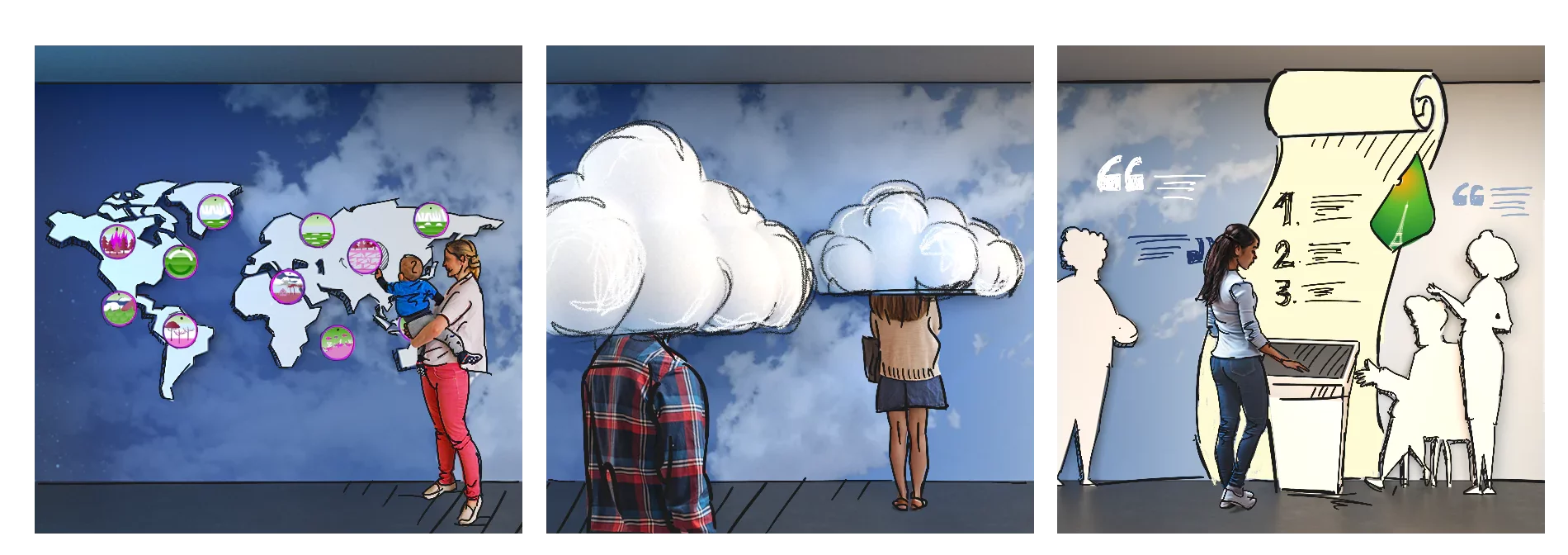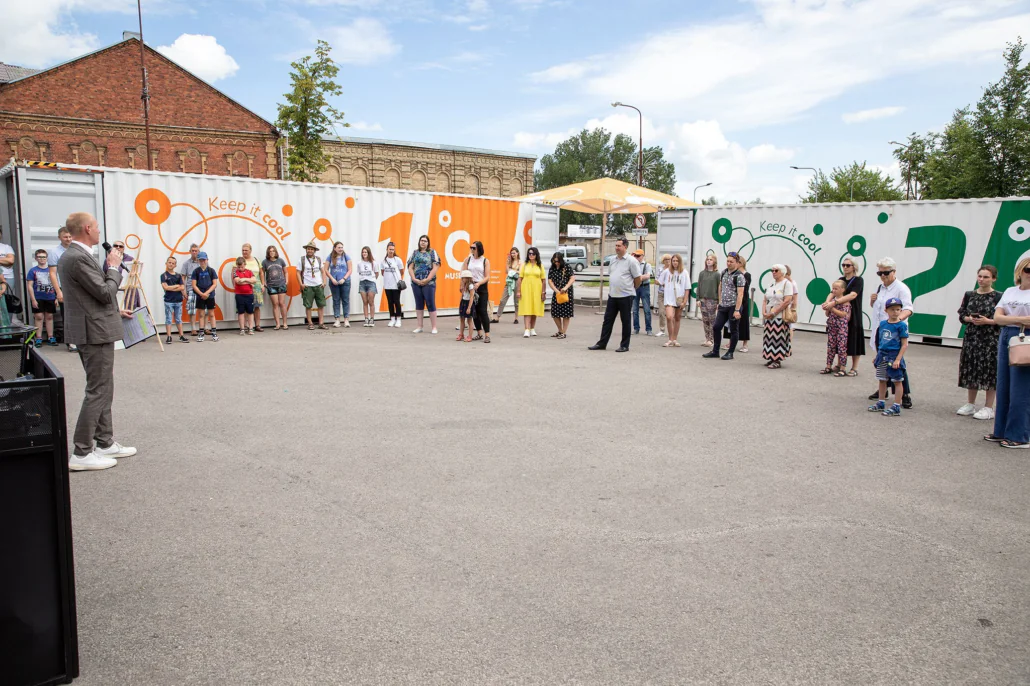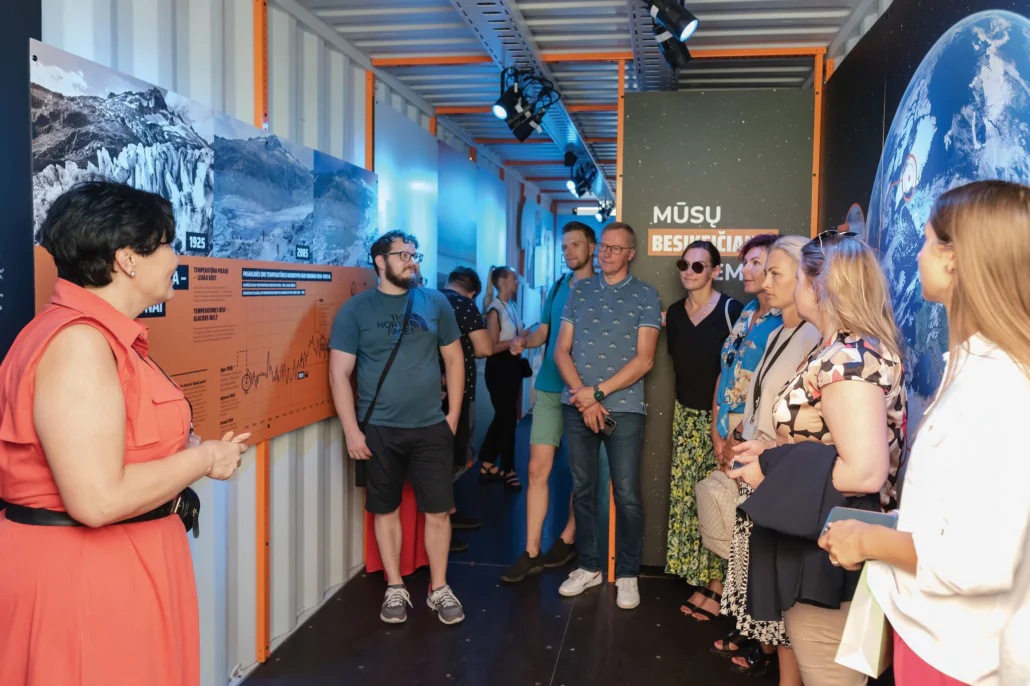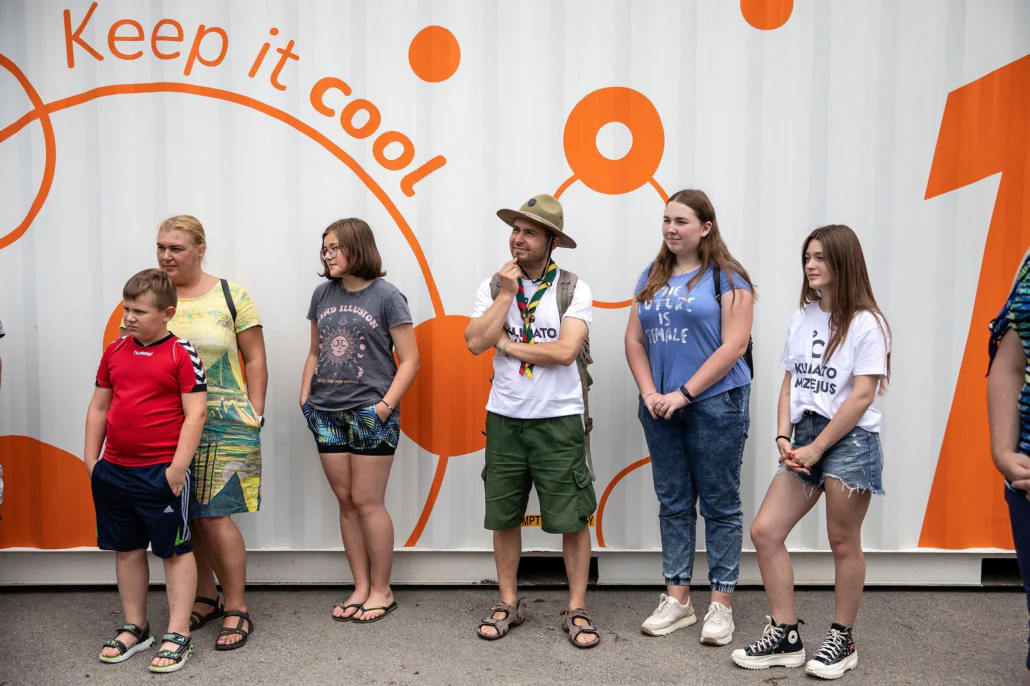EUKI Interview: Fostering Climate Action with a Traveling Museum
by Sina Goeschen and Pia Ahmed, GIZ/EUKI
Gediminas Kondrackis ist Mitbegründer der litauischen Active Youth Association und Leiter des EUKI-Projekts Klimawandel – sehen, fühlen, anpacken. Im Oktober letzten Jahres erhielt er den Baltic Sustainability Award für seine Arbeit als Changemaker in Litauen. Wir haben mit ihm über die Idee hinter dem mobilen Klimamuseum und dem Klimaaktivismus der baltischen Jugend gesprochen.

How did you come up with the idea of the mobile Climate Museum and was there a key moment that motivated you to realise it?
The idea of creating a mobile Climate Museum came to me when I realised how people were lacking access to information and hands-on experiences that could help them understand the urgency of the issue. There was, of course, a key moment that motivated me to bring this idea to life. I was once a frequent flyer and saw the massive impact it had on climate change. That turned me into a reluctant flyer since air travel is one of the contributors to it. Yet, when I tried talking about it back in Lithuania, I fell on deaf ears. It was then that I knew I had to create something that would inspire action and help people understand the stakes. With the Climate Museum, we can bring this message directly to students and communities, no matter how remote.

You just won the Baltic Sustainability Award 2022 for your role as a Changemaker. Congratulations! What are the next steps you want to take to educate people and change habits relating to sustainability and climate change?
Thank you! I am incredibly grateful to EUKI for their support of the mobile Climate Museum, as it would not have been possible without them. Moving forward, we are focusing on collaborating even more closely with teachers and students. The mobile Climate Museum placed a strong emphasis on the digital side of things, and as a result, we have built a substantial list of subscribers who are eager to learn more. This provides us with an ongoing opportunity to share valuable information and updates with a dedicated audience, helping to build a stronger, more informed community of climate advocates.
The Climate Museum educates people about climate change and its consequences. You probably spoke to many people during the tour. How would you assess their attitudes towards climate change and energy issues?
The perspectives on climate action vary greatly among different groups. It’s no secret that younger generations are generally more open and supportive of climate action, while some older individuals may be more sceptical. Additionally, there seems to be a divide between rural and urban areas. It was fascinating to discover that the topic of electric cars, for example, elicits strong reactions in rural areas. Despite the many benefits of electric vehicles, there is still a lot of misinformation and negative propaganda surrounding them, particularly regarding their batteries. In my eyes, it’s yet another testament to the need for continued education.



Nowadays youth all over the world are protesting for more and effective climate protection. How does climate activism take place in Latvia and Lithuania and how are young people engaged in it?
Climate activism in the Baltics has been gaining momentum in recent years, with young people (unsurprisingly) taking a leading role. I have been in awe of the passion, creativity, and determination that I’ve seen from these young activists, who are truly shaping the future with their actions. And it’s not just the youth – there are incredible environmental NGOs doing amazing work in both countries, creating real, meaningful change. However, there is still a great deal to learn from our peers in e.g., Germany. Especially, when it comes to street protest, which doesn’t have a long tradition in the Baltics. That’s perhaps due to a communist past. Also, climate and sustainability are less prominent on the Baltic’s social media. Which is sad, but at the same time it just says that there is a lot more to do. And we’re working on it.
Lithuania and Latvia both agreed on the EU´s energy and climate targets for 2030, which aim at reducing greenhouse gas emissions to at least 55% below the level of the 1990s. What are the main challenges the countries must overcome in the next years to reach their goals?
Reaching the 2030 climate targets in the Baltics is going to be a huge challenge, but one that I believe we are up for. It’s going to take a massive shift in the way we do things, from how we produce and use energy, to how we transport ourselves, to how we grow our food. Our experience with the Climate Museum is telling in this regard. To be more specific: 1) car usage needs to drop; 2) there needs to be more focus on reusing & reducing, rather than hitting the mall whenever you have the cash; and much else. But the reward for all this hard work will be a brighter future for our children, and a world that is healthier and more sustainable.
How can climate activists in Europe work more closely together to reach their goals towards climate protection?
Climate activists in the European community have the power to create real, lasting change! By coming together, pooling our resources, and supporting one another, we can accomplish so much more than we ever could alone. Imagine the impact we could have if we coordinated our efforts and took the fight against climate change to the next level. We can host forums, participate in funding programmes, share methods and insights, and work hand in hand with policy makers and business leaders to make sure our voices are heard and that the necessary changes are made. The future is in our hands – we should seize the opportunity and make it a bright one.
Gediminas, thank you for the Interview!
